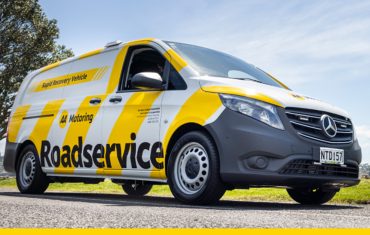
10 Essential vehicle financing questions
FinanceWhen you are thinking about vehicles for your business, there are a lot of questions to answer.
Getting your team where they need to go efficiently and cost effectively requires effective fleet management over time. And fleet funding decisions are an essential element in effectively managing your fleet.
Taking the time to answer the important vehicle financing questions that we cover here will help you minimise your business’ mobility costs.
The context for vehicles funding decisions
While we are focusing on vehicle financing here, remember there is a lot more to effective vehicle funding and management than choosing vehicles and organising funding. Ignoring the other aspects of getting your business moving is a good way to get vehicle financing wrong.
We’ll start with the assumption you want to get great value from your vehicles, and make sure your drivers and their passengers are safe. That takes us to two key concepts that should be the foundation of answering vehicle financing questions:
- Whole of life cost – in making vehicle financing decisions you need to consider the “total cost of ownership” (TCO) over time — which includes running costs, maintenance, insurance, registration, etc. – rather than just initial financing costs.
- Chain of Responsibility – as someone managing vehicles you are accountable for the health and safety of people in and around your vehicles – saving costs by skimping on safety or setting schedules that don’t allow for safe driving can cost you a lot, if anything goes wrong.
Key questions to answer in funding vehicles for your business
Whether you are updating your fleet or starting out it’s important to work systematically through these questions, if you want to make good vehicle funding decisions:
1. How much can you afford to spend?
Setting a budget for vehicle costs is an essential discipline as you decide on vehicles and how you will fund them. Lots of factors come into play here. Are you looking to expand? Do you think you’re paying too much for vehicles and transport? How much capital is available? What is the cost versus benefit picture? What are current vehicles costing to fund and run? Are savings available? A long conversation, based on analysis of historical mobility costs, with your accountant or finance director is required.
2. Should you work with a fleet management company?
Outsourcing fleet management services isn’t just for larger organisations. A professional fleet manager will have extensive experience answering all vehicle financing questions and understand how to minimise your total cost of ownership. At SG Fleet / LeasePlan, for instance, we offer small fleet leasing options including ones that provide help answering all the questions we are looking at here. Involving a fleet management company in that conversation with your accountant can really help.
3. How many vehicles do you need?
Minimising mobility costs starts with effective planning of your vehicle needs and use. Vehicles sitting in a carpark or depot still cost you money. Whereas, vehicles that get more use than you expect can cost more in running costs, tyres, and maintenance. Overusing vehicles might also incur excess wear and tear and excess mileage costs at the end of a lease. Then there’s the cost of vehicle down time, especially if you haven’t got adequate cover for vehicles being serviced. Your vehicle needs will evolve over time but its essential to think them through carefully when deciding on the number of vehicles you need.
4. What type of vehicles do you need?
Choosing the right vehicles is essential if you are going to minimise mobility costs. Time spent reading vehicle reviews, like the excellent ones offered by the AA, and making sure you understand your vehicle options is time well spent.
5. What do you need vehicles for?
Of course your vehicles will need to be fit for purpose, but there are all sorts of other considerations here as well and this is where careful consideration of total cost of ownership is essential. A cheaper vehicle might be able to carry the loads you need carried but liable to need more maintenance. A more expensive option might save you money over time through superior robustness and reliability. Additional accessories and bespoke fit outs may benefit certain job functions, but will you be overcapitalising for the actual usage patterns?
6. What will your vehicles cost you to finance?
A cheaper option might depreciate more quickly meaning a smaller residual value and higher monthly costs. But maybe the difference in insurance costs on a more expensive vehicle outweighs the savings associated with higher residual value.
7. Fuel costs? Is it time to go electric or hybrid?
More and more electric and hybrid vehicles are coming on to the market and it’s impossible to ignore the fuel cost savings they offer, particularly if you need vehicles for short urban trips. For us EVs are the new black when it comes to cost and emission conscious transport. We encourage you to start considering EVs if you are updating your vehicles. Working with a fleet manager or leasing company can be invaluable here as they will understand your options. But the government is also here to help with Right Car’s comprehensive look at vehicles’ comparative fuel cost and safety ratings.
8. Should you buy or lease?
So, you’ve decided on how many vehicles you need and what those vehicles will be. Now: should you buy or lease them? If you’re working with a fleet management company, you’ve probably settled on leasing. Financing the purchase of more than one or two vehicles is likely to stretch the capital of most SMEs, but purchasing a vehicle does allow flexibility in modifying it and total control over when you replace it. That said, we’d encourage you to fully investigate the opportunity to maintain working capital in your business, cash flow advantages and possible tax advantages leasing can offer.
9. What type of financing is best for you?
If you’re purchasing a vehicle you need to consider whether you get finance through a bank or finance company or enter into a hire purchase agreement with a dealer. With leasing your need to consider whether a finance or operating lease works best for you. You need to consider the length of the term, any interest costs, monthly repayments, fees and charges with any financing option.
10. How will you manage your vehicles?
Vehicle costs don’t stop when you sign the lease or loan – remember the importance of considering the TCO. There is a lot involved in keeping vehicles on the road – everything from registration and road charges to servicing, fuel costs and tyre costs can influence your monthly vehicle costs. Efficient management of these costs can save you a large amount of money over time. In a small team, managing servicing and compliance costs will often be on the office manager’s to do list by default. But an approach based on carefully monitoring vehicle use with, ever more affordable, telematics software can reveal significant savings. It pays to put some thought into vehicle management rather than use the default option.
Funding and managing your vehicle fleet effectively can offer your business significant savings. We encourage you to think carefully about your options as you work through these questions.
Please contact us if you have any questions.
 Driving Insights
Driving Insights




